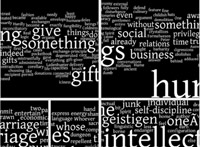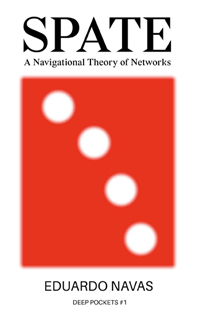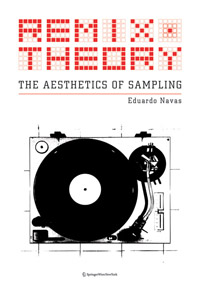After Iran’s Twitter Revolution: Egypt, by Eduardo Navas
Note: This text reflects on Egypt’s revolution to reconsider the role of social media, such as Twitter and Facebook, in real life changes.
This text is also available on The Levantine Review and Vodule.com
A peaceful revolution against a regime that had been in power for 29 years sounds impossible until one evaluates the events that led to the fleeing of former President Hosni Mubarak out of Egypt on Friday, February 11. The Egyptian people were able to organize with the use of social media; it was Facebook that rose to the occasion. Needless to say that what happened in Egypt is undoubtedly of historical importance.
About a year ago Wael Ghonim, a thirty-something Google executive decided to create a Facebook group “We Are All Khalid Said,” named after a young man who was killed by the Egyptian police.[1] The Facebook group reached hundreds of thousands, and Ghonim used it to educate people about their rights as citizens. More recently, a youth group known as April 6 was inspired by the events in Tunisia; along with supporters of Mohamed ElBaradei (a nobel prize winner who is active in revitalizing the politics of Egypt), with whom Ghonim also collaborates, they decided to turn the Police Day Protest (which previously was linked to British suppression), scheduled for January 25, into something much bigger. Ghonim announced the event on Facebook, and about 100,000 people signed up.[2] The rest, needless to say, is history–Tahrir Square was filled with thousands of people, and they never left until Mubarak stepped down from office.
The use of Ghonim’s Facebook group proved to be crucial in what has been called a leaderless revolution. And unlike the reality that may appear on the news at first glance, it took great effort and organization with the use of social media to bring people together.[3] This historical moment leads me to revisit some of my views on social media. The main reason being that with Tunisia and Egypt successfully taking to the streets, it appears that social media is being celebrated as an amazing resource for radical social change. It is true that social media is a great tool when it is appropriated for real life causes, but this positive aspect should be celebrated with the understanding that the interests of Facebook and Twitter as private endeavors, is mainly in data-mining the information that flows through their networks. In order to make sure that more progressive action takes place in the future with the use of social media, a reflection on their mission is necessary. I will focus mainly on Twitter, as it is the power of micro-blogging which has been of concern for me.
Before Egypt and Tunisia, there was Iran
Beginning on June 13, 2009, people in Iran used Twitter to communicate the development of their protest against the election of now Iranian President Mahmoud Ahmadinejad. In this case Twitter became a primary news source outside of Iran. CNN, Reuters and other news networks were dependent on Twitter to learn what was taking place inside the country.[4] While the protests went on for days, the presidential elections were not recalled. Nevertheless, Twitter proved to be useful as a great tool for people to organize and communicate fast in order express their disagreement collectively, and gain support for their cause beyond their locality.
And then came the events of Egypt after Tunisia. Twitter also played a great role in these case, but is not credited with Egypt’s recent revolution. As previously noted it was Facebook that rose to the occasion. According to new sources, Twitter was also used but in support of the long-term organizing which took place on Facebook. The reason for this may be obvious for people who use Twitter and Facebook, as the latter is a space where people can write lengthy messages, post images and video, and exchange information that can also be forwarded via e-mail, and accessed through mobile devices. Facebook is a site that allows people to develop in-depth relationships, even if they don’t ever meet others in person. This is exactly the way Ghonim used Facebook, which becomes evident once you visit the page he created.
Twitter is different in that its focus is mainly on sharing brief messages of 140 characters or less. Community building does take place, but on Twitter it takes shape in a different form. Twitter tends to be more casual, and fragmentary due to its short postings. Therefore, it is not an ideal space for in-depth sharing of information as Facebook has proven to be in the case of Egypt. But Twitter’s strength lies in its use of both Internet and Mobile phone technology to send messages. This is what made it so important during the Iran protests of 2009.[5] In Egypt, however, the government was able to shut down all communication, including cell-phones, but people by that time had gathered on Tahrir Square, and the entire world was paying attention.
After this brief overview of social media’s role in Egypt’s revolution, I must revisit my previous writing in which I analyze the background of social media. This will clarify how Facebook and Twitter, primarily designed for private interests, were used for the organization of Egyptian people in the name of real change.
The Mixed Potential of Social Media
On June 1, 2009, I released online my text “After the Blogger as Producer“[6], in which I argued that micro-blogging as used on Twitter encouraged people to write swiftly, and to move away from posting casual yet critical blog entries. This was a reflection on my previous text “The Blogger as Producer,” which I wrote as a critical re-evaluation of Walter Benjamin’s well-known essay, “The Author as Producer.”
In “After the Blogger as Producer” I did not emphasize the possible appropriation of twitter for social change in terms of organization of large gatherings, because my focus was on Twitter’s predisposition to encourage people to post as much as possible about their daily and even mundane activities, in order for Twitter to data-mine the information, and understand trends in different niche markets. I referred to their privacy policy to make this clear:
Twitter may sell, transfer or otherwise share some or all of its assets, including your personally identifiable information, in connection with a merger, acquisition, reorganization or sale of assets or in the event of bankruptcy. You will have the opportunity to opt out of any such transfer if the new entity’s planned processing of your information differs materially from that set forth in this Privacy Policy.[7]
This policy has been revised, and reads as follows:
In the event that Twitter is involved in a bankruptcy, merger, acquisition, reorganization or sale of assets, your information may be sold or transferred as part of that transaction. The promises in this privacy policy will apply to your information as transferred to the new entity. [8]
This is essentially the same statement, only more open-ended when we consider “…will apply to your information as transferred to the new entity.” It appears that Twitter is gaining more control over its members’ information; note that Twitter is not providing the option to opt out if a merger or acquisition takes place.
My concern was, and still is, that micro-blogging while it may be a great tool for staying connected with friends and family, as well as organizing a social revolution as we have witnessed with Egypt, is primarily a marketing device. It is free only because the information is of value for trend analysis. I find this of great concern because social media agreements, like Twitter’s, are redefining our privacy online. Private information becomes a company’s asset for them to data-mine. While some people may think there is nothing wrong with sharing information because one gets a “free” service, privacy concerns are real, as David C. Howe and Helen Nissenbaum argue:
We are disturbed by the idea that search inquiries are systematically monitored and stored by corporations like AOL, Yahoo!, Google, etc. and may even be available to third parties. Because the Web has grown into such a crucial repository of information and our search behaviors profoundly reflect who we are, what we care about, and how we live our lives, there is reason to feel they should be off-limits to arbitrary surveillance. But what can be done?[9]
Howe and Nissenbaum are critical of data-mining which is why they promote a socially conscious attitude when people use the Internet and the Web. Their contribution to the discourse around privacy is TrackMeNot, a Firefox plug-in designed to create search engine obfuscation. The plug-in is designed to hide a person’s search by creating noise with multiple fake searches. Some critics have dismissed TrackMeNot as a noisemaker, but the point, in my view, is that TrackMeNot promotes awareness of the real implication of online information exchange.
Critical appropriation of tools designed for private interests is possible with education as I previously explained when I discussed my art project Traceblog (2008 to the present) which uses TrackMeNot logs, published as blog postings, in order to create commentary on the ongoing changes in online privacy.[10] The news media is attributing the Egyptian revolution to educated people under thirty, who saw no future in their country. It seems, then, that education played an important role in Egypt’s eighteen day protest.
Prior to the development of Traceblog, I had written in 2007 in my text “Regressive and Reflexive Mashups in Sampling Culture” (later updated in 2010), that online platforms, such as Twitter, can be used for critical expression or for sheer entertainment. In this case I argued that it is up to users to decide if to be critical in their use of technology–even if the technology was originally designed for private interests. At the end of the text I explained that remix culture makes evident the mixed potential of emerging technology: “Remix culture is experiencing a moment in which greater freedom of expression is mashed up against increasingly efficient forms of analysis and control.”[11]
On November 27 2010, I posted an entry about my panel discussion on Remix and Transmedia, which took place in Sao Paulo, Brazil. At one point during the discussion, I was asked to discuss the lack of neutrality of social media. Here I must quote at length my response because it is directly relevant to the role of social media in Egypt’s revolution:
I cited [Iran’s use of Twitter to protest the elections of 2009] to argue that critical resistance is unable to organize itself in the long term effectively through recursive appropriation of tools such as Twitter, which are designed more for data-mining than democratic communication–that is, Twitter allows anyone to communicate “democratically” primarily because there is a potential market in data-mining twits for trends of all type. The challenge for those who are critical of commercial social media is to use the tools as devices for social change. In other words, use them for specific purposes that challenge the very foundation of the tool. This would place the owners of the platform in a situation where they would have to revise their approach to privacy and data-mining to be more fair, given that if they don’t, they could become irrelevant if enough users were to leave.[12]
In Egypt, people used social media for a very real cause: to overthrow a thirty year regime. They used social media for organizing on Tahrir Square. The events, it appears, happened rather organically with no apparent leader, at least publicly. Now, it is time to see if Egyptians will continue to use social media long term in a way that will lead to actual changes in the policies of social media platforms. I believe that moments of historical importance, like Egypt’s overthrow of its 30 year president, could not have been achieved without the use of social media. But this was possible because media was used as a critical tool by enough people with a certain level of education. It is my hope that social media will continue to be used critically in Egypt, and that other parts of the world will take conscience of the power of appropriation of commercial social media for their own local realities. Only time will tell how the future of Egypt shapes up, but one must be hopeful when realizing that the people who took to the streets were in part fueled by their critical awareness that radical change is possible.
I have mainly focused on Twitter in this text, but as I mentioned previously, it is Facebook that is credited with fomenting the revolution. I previously explained that Facebook functions differently from Twitter, yet both share a similar mission for data-mining. Facebook’s privacy guidelines are constantly changed, and members have to constantly check that whenever their privacy options are changed, their personal information is not at stake. I make this argument based on real experience with Facebook. Also the fact that it was Facebook that was used for the preparation to the protest of January 25, on Tahrir Square demonstrates that Micro-blogging as implemented by Twitter is limited. Twitter, however, as has been demonstrated with Iran and Egypt, can be useful for people to communicate when they are on the ground, when they are in the action. Again, it must be emphasized that it was an act of appropriation that made both of these social media resources useful–promoting revolutions is not in their mission statement, data-mining is. They claim to share information in order to “provide services.” This is a key term to say that your information is analyzed for understanding marketing trends.
A positive side of the use of Facebook and Twitter is that now journalists, media and cultural researchers can go back to the archives and understand better how the events took place. This demonstrates that we live in a time when people are able to express themselves with tools that can also be used to monitor them. It is up to us to take charge of how our information is really being used, while we also use the tools for real life critical practice.
In short, one must celebrate the appropriation of social media for real life causes, and not social media as a private endeavor made available for “free” communication as it currently appears to function most of the time. The real concern in this case is that, if we are not critical of the foundation of social media, they will continue to thrive as a commercial model that reshapes privacy because of success stories like Egypt’s.
In reality, it is the “hacking” of the social platforms that are effective. It is the people’s will for change that is effective–and must be celebrated, and be used as fuel to make real changes to the platforms that currently data-mine information. Paradoxically, social media is egalitarian in its approach to information. They archive all material, including casual posts about movies and TV shows someone likes, in direct juxtaposition with life-changing twits, such as the ones produced by the people of Egypt, all in the name of the bottom-line.
[1] “We are all Khaled Said,” http://www.facebook.com/elshaheeed.co.uk, accessed February 14, 2011.
[2] David D. Kirkpatrick and David E. Sanger, “Dual Uprisings Show Potent New Threats to Arab States,” New York Times, http://www.nytimes.com/2011/02/14/world/middleeast/14egypt-tunisia-protests.html?pagewanted=1&_r=2&hp, accessed February 14, 2011
[3] Ibid, also see, “Wael Ghonim and Egypt’s New Age Revolution,” http://www.cbsnews.com/video/watch/?id=7346812n&tag=contentMain;cbsCarousel, accessed February 14, 2011
[4] Lev Grossman, “Iran Protests: Twitter, the Medium of the Movement,” Time, http://www.time.com/time/world/article/0,8599,1905125,00.html, accessed February 14, 2011
[5] Ibid.
[6] “After the Blogger as Producer,” https://remixtheory.net/?p=378
[7] Ibid.
[8] “Twitter Privacy Policy,” http://twitter.com/privacy, accessed February 14, 2011.
[9] “Trackmenot” http://cs.nyu.edu/trackmenot/, accessed February 14, 2011.
[10] Interview by Lucrezia Cippitelli, “Eduardo Navas: Track Me Not, Please!” https://remixtheory.net/?p=370, accessed February 14, 2011.
[11] For 2007 see, “Regressive and Regressive Mashups in Sampling Culture,” https://remixtheory.net/?p=235. for the 2010 revision see, “Regressive and Reflexive Mashups in Sampling Culture, 2010 Revision,” https://remixtheory.net/?p=444.
[12] “Transmedia and Remix Debate at Brazilian Digital Culture 2010,”https://remixtheory.net/?p=457, accessed February 14, 2011.








